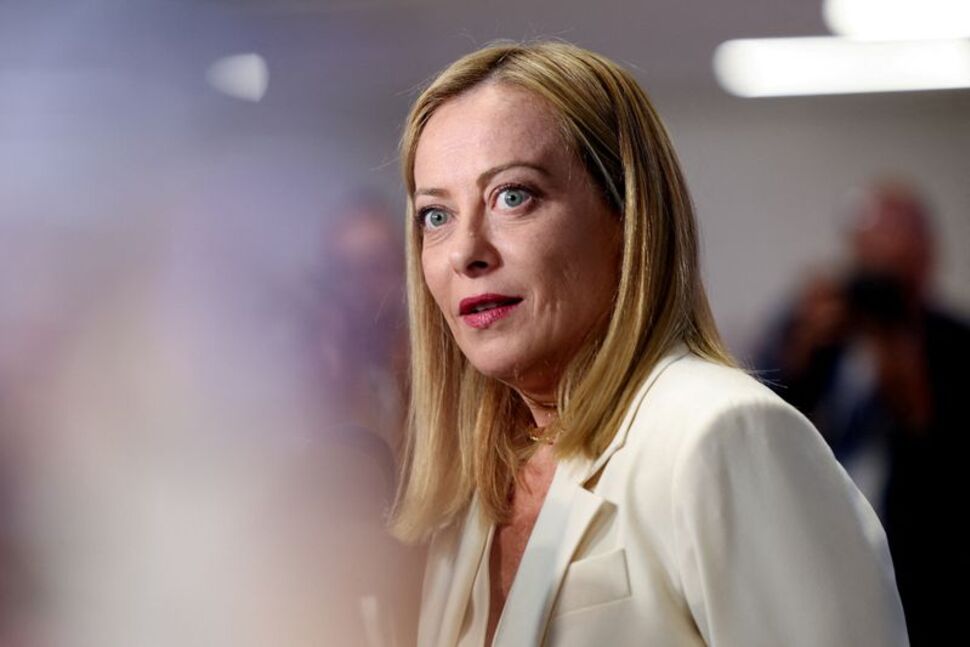The Italian government has increased its humanitarian efforts to help Gaza. However, it remains firm in its refusal to officially recognise Palestine as a state. On Saturday, the Italian army and air force worked together with the Jordanian military. They delivered important humanitarian aid to the Gaza Strip. This aid mission is part of a larger effort called “Solidarity Path Operation 2.” The goal is to help reduce the hunger crisis affecting many Palestinians in the region.
Italy increases humanitarian aid to Gaza but holds back on Palestine state recognition
Italy is dedicated to helping the Palestinian people. This includes providing medical care. In the Chamber of Deputies, Italian Parliamentary Relations Minister Luca Ciriani announced that Italy is preparing to take in fifty more Palestinian citizens. This group will include twenty children who will receive medical care in Italy. This humanitarian action followed a phone call in late July between Israeli Prime Minister Benjamin Netanyahu and Italian Prime Minister Giorgia Meloni. During the call, Meloni described the situation in Gaza as “unsustainable and unjustifiable.” She also urged Netanyahu to end the fighting immediately.
Despite these humanitarian efforts, Italy has set a clear boundary on the political recognition of Palestine. Unlike some countries that have shown intentions to recognize a Palestinian state, Italy has not taken that step. Prime Minister Meloni explained her position in an interview with the Italian newspaper La Repubblica. She said that recognizing Palestine before a formal state is established could harm the chances of achieving a peaceful two-state solution.
❗France breaks ranks with West—backs Palestinian state, sparks U.S.–Israel fury
Growing international and domestic pressure for Palestine recognition
The refusal by Italy’s government to recognise Palestine has attracted significant attention both internationally and within Italy itself. Several countries, including France, Canada, and the United Kingdom, have recently announced their intentions to recognise a Palestinian state or have expressed conditional support for such recognition. France, for example, declared in late July its plan to unilaterally recognise Palestine at the United Nations General Assembly scheduled for September.
Domestically, the Italian opposition has been vocal in its demand for a change in policy. Political parties such as Partito Democratico, Movimento Cinque Stelle, Sinistra Italiana, and Alleanza Verdi e Sinistra have been pushing the government to formally acknowledge Palestine. In April, these parties submitted a parliamentary motion that not only condemned Israel’s military actions in Gaza but also called for an immediate ceasefire. The motion urged Italy to halt arms sales to Israel and recognize Palestine based on the borders established in 1967.
🧨 Sanctions vs. statehood: U.S. blocks Palestinian officials, sparks diplomatic uproar
Despite this pressure, the coalition government led by right-wing parties — Lega, Forza Italia, and Meloni’s Fratelli d’Italia — has resisted these calls. Meloni has maintained that early recognition could make regional peace efforts more difficult and has denounced France’s move to recognize Palestine as “hurried.” Although she has stated that she supports the idea of Palestinian statehood, she maintains that timing is of the essence.
At the National Council of Forza Italia in Rome, Antonio Tajani, the Italian Foreign Minister and Forza Italia leader, echoed Meloni’s opinion. According to Tajani, Italy feels that the new Palestinian entity should recognize Israel and a Palestinian state at the same time. This view emphasizes a balanced diplomatic approach that Italy hopes will avoid further conflict.
Stable Diplomatic Relations Amid Controversy
Italy and Israel have maintained formal diplomatic relations for over 76 years. These ties remain stable even as the international community intensifies pressure on Israel regarding its military operations in Gaza. The situation has drawn widespread criticism, with some accusing the Israeli government and military of actions that could be seen as genocidal.
China Strongly Rejects Trump’s Gaza Takeover Proposal, Reaffirms Support for Palestine
In this complex political climate, Italy appears to be trying to balance its humanitarian responsibilities with its diplomatic commitments. The government’s refusal to recognise Palestine officially is an attempt to avoid undermining a potential negotiated peace. Meanwhile, its humanitarian aid to Gaza and acceptance of Palestinian civilians for medical treatment demonstrate Italy’s concern for the people affected by the conflict.
Italy’s position reflects a wider debate within the European Union and the international community. While some nations push for quicker recognition of Palestinian statehood, others advocate for caution to maintain diplomatic stability and promote long-term peace. Italy’s stance highlights the challenge of navigating these competing pressures while responding to urgent humanitarian needs.

